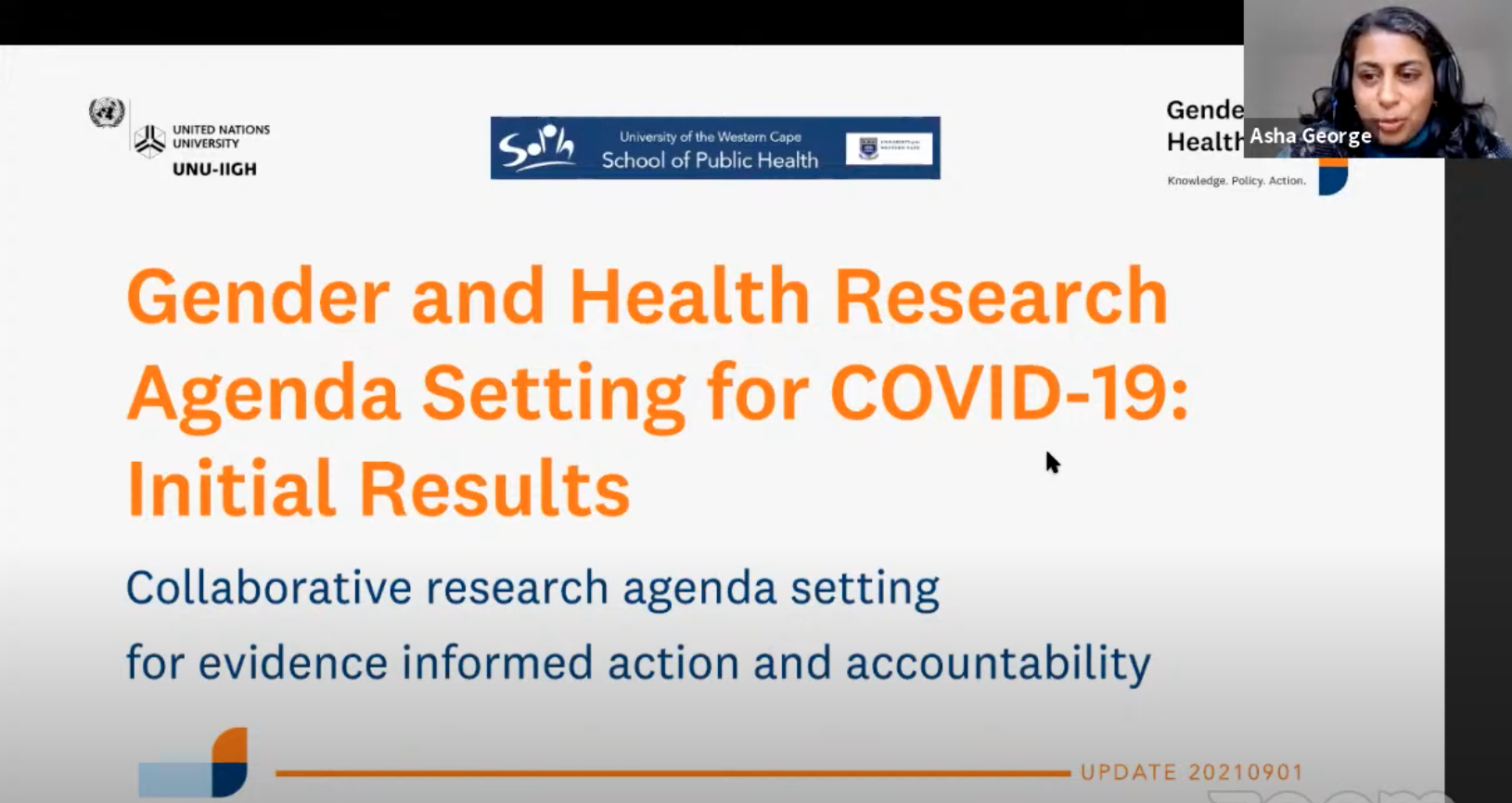Lynda Keeru attended the United Nations University International Institute for Global Health (UNU-IIGH) and the School of Public Health at the University of the Western Cape’s webinar on gender and COVID-19 research agenda-setting. She summarizes what was discussed in the webinar.
The Hub is keen to develop a shared and prioritized research agenda and framework for evidence-informed action to address gender and intersectionality in the global health COVID-19 response. This is vital for providing a systematic and inclusive way to map gender and COVID-19 research; in order to support policy and programming. They are working in consultation with UN agencies under the leadership of WHO; as well as opening calls for participation from others.
Asha George explained that members of the Hub wanted a way in which they could systematically and openly set research priorities in a way that includes researchers and other stakeholders like civil society organizations and donors. Much as COVID-19 has brought challenges, it has brought a few positive things with it; one of which is an online way of bringing people from all over the world together to discuss issues. It is a critical change; as it ensures that it is not a small number of people seated somewhere in a boardroom setting these priorities. This is done in consultation with many other groups and the Hub is keen to continue with this trend.
The first phase of this process began in August 2020 and involved setting up the initiative followed by stakeholder engagement. In the first few months, over 400 people joined mostly from low- and middle-income countries. In November of the same year, they developed the research protocol in an open process and had online discussions. 111 responses have so far been collected for thematic surveys and the Hub has produced an interactive dashboard updated once a week where people can log on for information.
Ana Maria from WHO presented about the R&D Blueprint and explained that it was developed to accelerate diagnostics, vaccines and therapeutics for this novel coronavirus. The Blueprint aims to improve coordination between scientists and global health professionals, accelerate the research and development process, and develop new norms and standards to learn from and improve upon the global response. The goal is to accelerate innovative research to help contain the spread of the virus and provide care for those affected. This will assist with the response to future pandemics.
Ana also highlighted that research studies should focus on questions that are of importance to public health discussions and whose results will inform public health actions. Coordination of donors and alignment with globally defined priorities must continue.
If gender is not put at the forefront of the COVID-19 response, including the vaccination efforts, recovery from the pandemic will be very difficult. Women must be at the center of the response as they compromise the majority of the global health workforce. In addition to ensuring that women are part of vaccine rollout plans, their equal and meaningful participation in leadership and decision making is vital. Women must be protected and respected.






